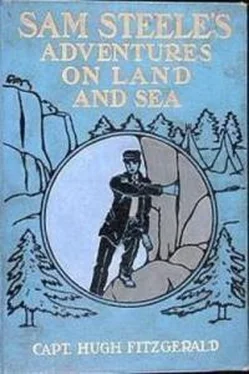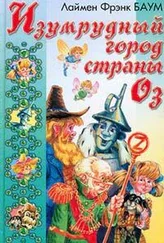I was about to pass him and go down to the beach, where I might find a solitary spot for my musings, when the man turned his eyes up to mine and gave a wink that seemed both mysterious and confidential.
“It’s Sam, ain’t it?” he asked, with another silent chuckle.
“Yes, sir,” I replied, resenting his familiarity while I wondered how he should know me.
“Cap’n Steele’s son, I’m guessin’?” he continued.
“The same, sir,” and I made a movement to pass on.
“Sit down, Sam; there’s no hurry,” and he pointed to the bench beside him.
I obeyed, wondering what he could want with me. Half turning toward me, he gave another of those curious winks and then suddenly turned grave and resumed his whittling.
“May I ask who you are, sir?” I enquired.
“No harm in that,” he replied, with a smile that lighted his wrinkled face most comically. “No harm in the world. I’m Naboth Perkins.”
“Oh,” said I, without much interest.
“Never heard that name before, I take it?”
“No, sir.”
“Do you remember your mother?”
“Not very well, sir,” I answered, wondering more and more. “I was little more than a baby when she died, you know.”
“I know,” and he nodded, and gave an odd sort of grunt. “Did you ever hear what her name was, afore she married the Cap’n?”
“Oh, yes!” I cried, suddenly enlightened. “It was Mary Perkins.”
Then, my heart fluttering wildly, I turned an intent and appealing gaze upon the little man beside me.
Naboth Perkins was seized with another of those queer fits of silent merriment, and his shoulders bobbed up and down until a cough caught him, and for a time I feared he would choke to death before he could control the convulsions. But at last he recovered and wiped the tears from his eyes with a brilliant red handkerchief.
“I’m your uncle, lad,” he said, as soon as he could speak.
This was news, indeed, but news that puzzled me exceedingly.
“Why have I never heard of you before?” I asked, soberly.
“Haven’t ye?” he returned, with evident surprise.
“Never.”
He looked the stick over carefully, and cut another notch in it.
“Well, for one thing,” he remarked, “I’ve never been in these parts afore sence the day I was born. Fer another thing, it stands to reason you was too young to remember, even if Mary had talked to ye about her only brother afore she died an’ quit this ’ere sublunatic spear. An’, fer a third an’ last reason, Cap’n Steele were a man that had little to say about most things, so it’s fair to s’pose he had less to say about his relations. Eh?”
“Perhaps it is as you say, sir.”
“Quite likely. Yet it’s mighty funny the Cap’n never let drop a word about me, good or bad.”
“Were you my father’s friend?” I asked, anxiously.
“That’s as may be,” said Mr. Perkins, evasively. “Friends is all kinds, from acquaintances to lovers. But the Cap’n an me wasn’t enemies, by a long shot, an’ I’ve been his partner these ten year back.”
“His partner!” I echoed, astonished.
The little man nodded.
“His partner,” he repeated, with much complacency. “But our dealin’s together was all on a strict business basis. We didn’t hobnob, ner gossip, ner slap each other on the back. So as fer saying we was exactly friends—w’y, I can’t honestly do it, Sam.”
“I understand,” said I, accepting his explanation in good faith.
“I came here at this time,” continued Mr. Perkins, addressing his speech to the jack–knife, which he held upon the palm of his hand, “to see Cap’n Steele on an important business matter. He had agreed to meet me. But I saw Ned Britton at the tavern, las’ night, an’ heerd fer the first time that the ‘Saracen’ had gone to Davy Jones an’ took the Cap’n with her. So I come up here to have a little talk with you, which is his son and my own nevvy.”
“Why didn’t you come up to the house?” I enquired.
Mr. Perkins turned upon me his peculiar wink, and his shoulders began to shake again, till I feared more convulsions. But he suddenly stopped short, and with abrupt gravity nodded his head at me several times.
“The woman!” he said, in a low voice. “I jest can’t abide women. ’Specially when they’s old an’ given to argument, as Ned Britton says this one is.”
I sympathized with him, and said so. Whereat my uncle gave me a look gentle and kindly, and said in a friendly tone:
“Sam, my boy, I want to tell you all about myself, that’s your blood uncle an’ no mistake; but first I want you to tell me all about yourself. You’re an orphan, now, an’ my dead sister’s child, an’ I take it I’m the only real friend you’ve got in the world. So now, fire away!”
There was something about the personality of Naboth Perkins that invited confidence; or perhaps it was my loneliness and need of a friend that led me to accept this astonishing uncle in good faith. Anyway, I did not hesitate to tell him my whole story, including my recent grief at the news of my dear father’s death and the startling discovery I had just made that I was penniless and in debt for my living to Mrs. Ranck.
“Father has often told me,” I concluded, “that the house was mine, and had been put in Mrs. Ranck’s name because he felt she was honest, and would guard my interests in his absence. And he told me there was a store of valuable articles in his room, which he had been accumulating for years, and that the old sea–chest alone contained enough to make me independent. But when we examined the room this morning everything was gone, and the chest was empty. I don’t know what to think about it, I’m sure; for father never lied, in spite of what Mrs. Ranck says.”
Uncle Naboth whistled a sailor’s hornpipe in a slow, jerky, and altogether dismal fashion. When it was quite finished, even to the last quavering bar, he said:
“Sam, who kept the keys to the room, an’ the chest?”
“Mrs. Ranck.”
“M—m. Was the room dark, an’ all covered over with dust, when you went in there this mornin’?”
“I——I don’t think it was,” I answered, trying to recollect. “No! I remember, now. The blind was wide open, and the room looked clean and in good order.”
“Sailors,” remarked Mr. Perkins, impressively, “never is known to keep their rooms in good order. The Cap’n been gone five months an’ more. If all was straight the dust would be thick on everything.”
“To be sure,” said I, very gravely.
“Then, Sam, it stands to reason the ol’ woman went inter the room while you was asleep, an’ took out everything she could lay her hands on. Cap’n Steele didn’t lie to you, my boy. But he made the mistake of thinkin’ the woman honest. She took advantage of the fact that the Cap’n was dead, an’ couldn’t prove nothin’. And so she robbed you.”
The suspicion had crossed my mind before, and I was not greatly surprised to hear my uncle voice it.
“Then, can’t we make her give it up?” I asked. “If she has done such a wicked thing, it seems as though we ought to accuse her of it, and make her give me all that belongs to me.”
Uncle Naboth rose slowly from the bench, settled his felt hat firmly upon his head, pulled down his checkered vest, and assumed a most determined bearing.
“You wait here,” he said, “an’ I’ll beard the she–tiger in her den, an’ see what can be done.”
Then he gave a great sigh, and turning square around, marched stiffly up the path that led to the house.
I awaited with as much patience as I could muster the result of the venture. I was proud of Uncle Naboth’s bravery, and hoped he would be successful. Surely the brief interview with my newly acquired relative had caused a great change in my future prospects, for it was not likely that my mother’s brother would desert me in my extremity. I had left the house that was now no longer my home without a single friend to whom I could turn, and behold, here was a champion waiting to espouse my cause! Mr. Perkins was somewhat peculiar in his actions, it is true, but he was my uncle and my dead father’s partner, and already I was beginning to have faith in him.
Читать дальше








